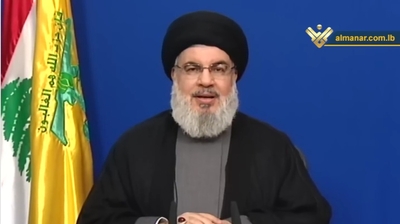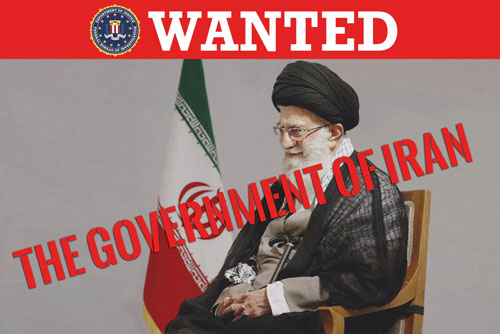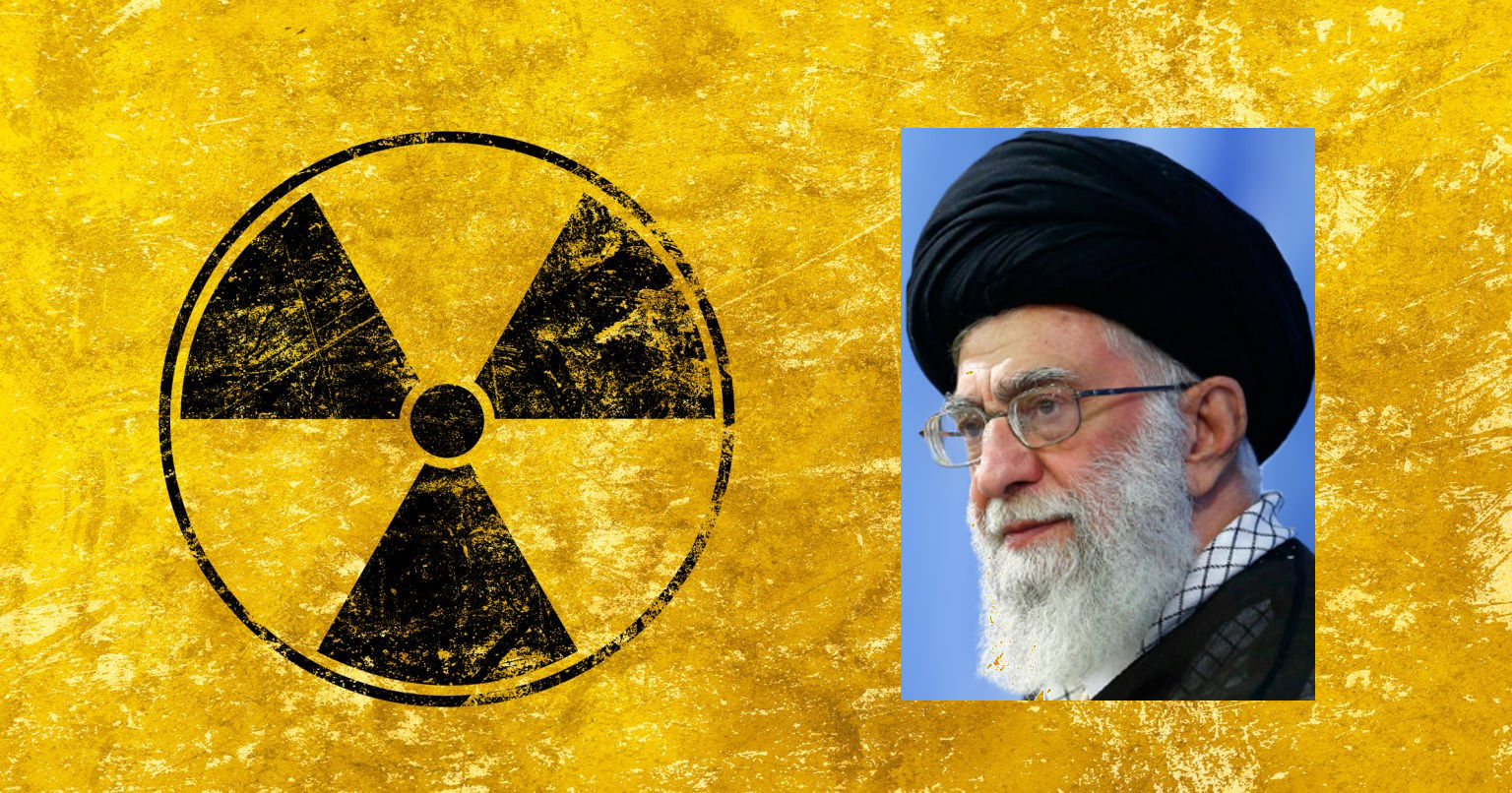 Hizballah leader Hassan Nasrallah responds to Germany's terrorist designation. |
An Iranian newspaper accused German Chancellor Angela Merkel of being a "Zionist spy," and called her "worse than Hitler."
Germany was "paying regard only to the objectives of the propaganda machine of the Zionist regime and the confused US regime," said Iranian Foreign Ministry Spokesman Seyyed Abbas Mousavi.
Lebanon's Foreign Minister Nassif Hitti summoned the German ambassador in Beirut on Tuesday, seeking an explanation over the German government's decision. "Hizballah is a main political component in Lebanon which represents a wide section of the people and part of parliament," a statement from Hitti's office said, thus aligning the Lebanese state interests with Hizballah's.
There are an estimated 41,000 Lebanese living Germany. Many Lebanese citizens immigrated to Germany following the 1975 outbreak of Lebanon's civil war.
The reported 1,050 people arrested in Germany last week matches the number of suspected Hizballah members living there.
Hizballah leader Sheikh Hassan Nasrallah said Monday that there was no evidence that his organization had any activities in Germany.
"Where are Hizballah activities in Germany?" he asked. "Show us one file. Nothing."
Germany, he said, was submitting to outside pressure.
"Simply put, this is America's war which has a hegemonic project in the region. Israel has a project of occupation and stabilization of the occupation," Nasrallah said. "Those who stand in the way of the American hegemony project and the Zionist occupation project are the resistance movements."
Germany previously outlawed Hizballah's military wing from operating there, but left the political branch alone.
For years, Germans witnessed Hizballah members in yellow bandanas waving the group's flags as a show of force every end of Ramadan. These marches included anti-Semitic Arabic songs that included calls to destroy Israel.
During his speech, Nasrallah expressed concern that European countries would follow Germany's lead. In fact, the United Kingdom banned Hizballah last year and Holland did so in 2013. The Dutch decision followed a European Union probe after Hizballah was linked to a bus bombing in Burgas, Bulgaria in 2012 killing five Israeli citizens and a Bulgarian.
While the European Union designated Hizballah's military wing as a terrorist organization, it still stops short of designating the entire political movement even though both the violent and political branches are under Nasrallah's and Iran's control.
The Iranian regime remains Hizballah's biggest financier, providing an estimated $700 million per year.
Reflexive condemnations of Israel are not limited to Hizballah and Iranian government officials.
Physicist Syksy Räsänen, who serves on Finland's Amnesty International's board, argued that it is Israel which should be banned.
Germany designated Hizballah "because it 'calls for the violent elimination of the State of Israel and questions the right of the State of Israel to exist,'" Räsänen wrote. "Replace Israel [with] Palestine, and this describes most Israeli parties."
But Hizballah's destructive role in the Middle East has earned it no compassion or respect. It acted as Syrian dictator Bashar Al-Assad's backup army, contributing to the Syrian civil war's horrific death toll. In Yemen, similar involvement by Hizballah extended an ongoing civil war by supporting Iranian-backed Houthi militias. Houthi rebels expressed their appreciation last summer by donating $300,000 to Hizballah.
Standing before stacks of cash destined for Hizballah, a Houthi radio director and three associates yelled, "Death to America, death to Israel, curse the Jews."
The Arab League, comprised of 22 Arabic-speaking countries, designated Hizballah a terrorist organization in 2017 for destabilizing the region, and posing "a threat to Arab national security by raising sectarian, sectarian and ethnic tensions" in Saudi Arabia Bahrain and Yemen. During the meeting, Former Lebanese Foreign Minister Gebran Basil described Hizballah as an integral part of Lebanon and not a terrorist organization. Hizballah still wields a large political and military power in the country.
Germany's action is supposed to ban all Hizballah activities there. Germany has Europe's largest economy and holds major political influence within the European Union. Nasrallah, therefore, could be right. Germany's designation may persuade other EU members to recognize the threat Hizballah poses and similarly designate Hizballah as a terrorist organization.
Hany Ghoraba is an Egyptian writer, political and counter-terrorism analyst at Al Ahram Weekly, author of Egypt's Arab Spring: The Long and Winding Road to Democracy and a regular contributor to the BBC.



 New Hizballah Terror Network in Syria Exposed
New Hizballah Terror Network in Syria Exposed
 Why Tackling the Iranian Regime Should Be On Top Of Trump's Administration Agenda
Why Tackling the Iranian Regime Should Be On Top Of Trump's Administration Agenda
 New Nuclear Deal Would Empower the Iranian Regime
New Nuclear Deal Would Empower the Iranian Regime